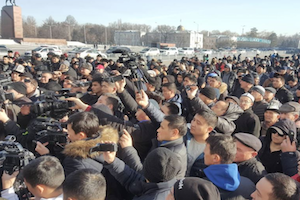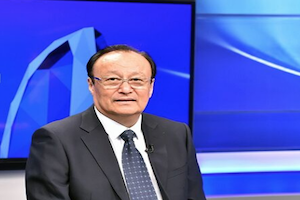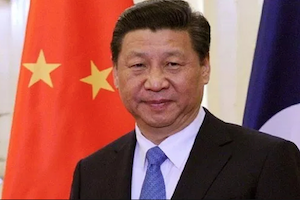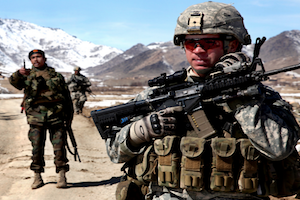Protest Against Chinese Migrants in Kyrgyzstan: Sinophobia or Demands for Social Justice?
By Nurlan Aliyev
April 16, 2019, the CACI Analyst
An anti-Chinese protest took place in Bishkek on January 17, 2019, the third in recent months. The protesters demanded a moratorium on issuing Kyrgyz passports to Chinese citizens, except for ethnic Kyrgyz, to scrutinize all Chinese-funded enterprises and also to test the appropriateness of loans taken from China. They demanded that Chinese citizens who reside illegally in Kyrgyzstan should be deported and a halt to labor quotas for Chinese. Other topics raised were high-level corruption and demands for transparency in the government’s financial activities, especially regarding its expenditure of Chinese grants and loans. Protesters also expressed disapproval of marriages between Kyrgyz women and Chinese men, demanding prohibited registration of mixed marriages and fines for newlyweds. The anti-Chinese protests in Kyrgyzstan take place in a broader context of rising sinophobic sentiments in Central Asia in recent years.

Xinjiang: Internment Camps with "Temporary" Characteristics?
By Ruth Ingram
March 25, 2019, the CACI Analyst
Official reassurances that Xinjiang's internment camps are only "temporary" fly in the face of mounting evidence to the contrary. Faced with incontrovertible data that now up to 1.5 million Uyghurs and Kazakhs are extra-judicially interned, Beijing is refusing to bow to international criticism and continues to justify its counter-terrorism strategy. Calling on the world to support its methods, Beijing is mounting an all-out public relations drive to persuade critical voices that in fact the camps are benign and successful in achieving their objectives. But the "experiment" already two years in operation shows no sign of abating. World leaders are calling it a cultural genocide and stepping up their demands to inspect the facilities.

Protecting BRI: China's Foreign Security Concerns
By Sudha Ramachandran
March 14, 2019, the CACI Analyst
In November 2018, Baluch militants, angry with China’s exploitation of their resources through Belt and Road Initiative (BRI) projects, attacked the Chinese consulate in Karachi, Pakistan. This underscored the vulnerability of Chinese nationals and infrastructure projects outside China’s borders to terrorism. In addition, China’s repression of Muslim Uighurs in its Xinjiang province has drawn the ire of Uighur militants and jihadist groups. China will have to find a way to secure its nationals abroad and projects in BRI member-states, without triggering alarm among BRI skeptics.

Wither Afghanistan? The Great Game Takes a New Turn
By Stephen Blank
February 13, 2019, the CACI Analyst
When he announced the withdrawal of U.S. troops from Syria, President Trump also announced the departure of one half (7,000) of America’s troops in Afghanistan. This abrupt decision both damaged the U.S. position in the Middle East and undermined ongoing negotiations with the Taliban over Afghanistan. It upset all the calculations of the Afghan government, leaving it scrambling for a new negotiating and strategic posture, and undid two years of successful albeit modest U.S. policy of renewed economic and political support for Central Asia. This will allow both Beijing and Moscow to respond by extending their influence in Central Asia at America’s expense and to employ their strongest capabilities for doing so.

Towards a Central Asia and Caucasus Trade Bloc for Belt and Road
By Tristan Kenderdine
October 30, 2018, the CACI Analyst
In the trade war with the U.S., China has clearly shown that it is willing to reject Pacific trade partners based on political over economic considerations. Beijing’s wider policy to develop industrial and agroindustrial capacity in Central Asia, the Caucasus and the Middle East means that these economies can use short-term structural changes in global trade dynamics to their longer term advantage. Ultimately, all states suffer in a trade war. If Central Asian, U.S. and European producers all had open access to China’s markets, all sides would benefit in the long run. In the short term though, a U.S.-China trade war is a huge opportunity for Central Asian economies to soak up China’s heavy industry outward direct investment despite the risk of a China policy bank debt-trap.



